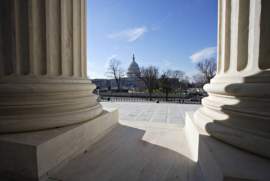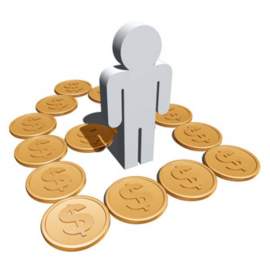
New Hampshire State Tax

New Hampshire has one of the lowest tax burdens in the United States, owing to a lack of sales tax and conventional personal income tax. The state relies on property taxes and taxes on dividends for revenue. Tax returns are due on April 15.
New Hampshire state sales/use tax - There is no sales tax in New Hampshire.
New Hampshire personal income tax
New Hampshire does not tax personal income. Income from dividends and interest are taxed at a rate of 5%. This tax is assessed from individuals, partnerships, LLCs earning more than $2,400 annually from investments. There are exemptions for the disabled and the elderly.
Most individuals pay no taxes at all in New Hampshire.
New Hampshire excise taxes
Taxes will be assessed on alcohol, tobacco, gasoline and other miscellaneous items, at the discretion of the state.
- $1.78 per package of 20 cigarettes
- Liquor excise tax is almost zero, sales controlled by state
- Wine is sold by the state only and taxes are collect through its sale to consumers
- $.30 per gallon of beer
- $.196/gallon on gasoline
- There is an 8% tax on lodging and restaurant meals
New Hampshire inheritance tax
There is no New Hampshire inheritance or estate tax
New Hampshire payroll taxes
State Disability Insurance – none
State Unemployment Insurance – 1.10% to 9.50%, wage base is $12,000. New employer contribution is 1.7%. State minimum wage follows federal standards
New Hampshire state property tax
Property taxes are based on municipality and assessed annually, semiannually or quarterly. State and local property taxes are collected in New Hampshire. 100% of the full market value is used to determine the taxation rate. Taxes will be adjusted with the market value of the property. There is a low and moderate income tax relief program for homeowners. New Hampshire property taxes are among the highest in the nation, reflecting the lack of other forms of taxation. A state education property tax rate of $2.35 per $1,000 of assessed value is also levied. Property taxes can be deferred at a 5% interest rate. Deferred taxes cannot be more than 85% of the value of the property.
New Hampshire state corporate tax
The corporate tax rate in New Hampshire is a flat 8.5% for all corporations grossing $50,000. This is somewhat higher than other states.
Exemptions
Elderly New Hampshire residents can receive exemptions from property tax is they earn below a certain threshold, generally 5,000 for single individuals and $6,000 for married couples will have $5,000 exempted from the property tax evaluation. The low and moderate tax relief program will help individuals making less than $20,000 for a single person or $40,000 for a married couple in a property considered a homestead and taxed by the state education tax.


















